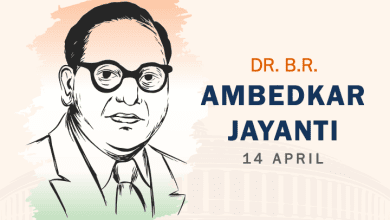After A Border Conflict, India’s Foreign Minister Meets With China’s Foreign Minister.
Foreign Minister S Jaishankar and his Chinese counterpart Wang Yi had delegation-level talks in Delhi today, marking the greatest level of cooperation between the two nations since a deadly border conflict in 2020 strained relations. Wang Yi paid an unannounced visit last night.
Ajit Doval, the National Security Adviser, was Wang Yi’s first meeting. According to the news agency PTI, they discussed the border dispute as well as the geopolitical consequences of the Ukraine conflict. This is China’s first high-profile visit to India since the Ladakh border battles.
Mr. Doval and Mr. Wang discussed the importance of early and total disengagement in contested areas, as well as the necessity to remove impediments to allow the bilateral relationship to run its natural course.
Later, Mr. Jaishankar will give a press conference about his talks with China’s Foreign Minister.
Wang Yi is scheduled to fly to Nepal later today after visiting Pakistan and Afghanistan before arriving in Delhi.
The visit of the Chinese Foreign Minister has been shrouded in mystery, with neither side issuing an official statement. Only the tracking of his plane’s flight route after it took off from Afghanistan on Thursday could confirm his arrival.
The visit is intended to re-establish physical contact after a lengthy standoff. According to the Press Trust of India, the Chinese minister is also planning to invite Prime Minister Narendra Modi to a BRICS gathering in Beijing later this year.
The visit is intended to re-establish physical contact after a lengthy standoff. According to the Press Trust of India, the Chinese minister is also planning to invite Prime Minister Narendra Modi to a BRICS gathering in Beijing later this year. Last month, Foreign Minister Jaishankar stated that India’s relations with China are at a “very difficult phase” following Beijing’s violation of border agreements, asserting that “the state of the border will decide the state of the relationship.”
India had responded angrily to Wang’s “uncalled remark” to Kashmir at a Pakistani event just days before his arrival. In his inaugural remarks at the Organisation of Islamic Cooperation in Pakistan, the Chinese minister mentioned Kashmir, saying: “Many of our Islamic allies have renewed their calls for action in Kashmir today. China shares the same optimism.”
New Delhi claimed that “matters pertaining to the Union Territory of Jammu and Kashmir are totally within India’s domestic affairs,” and that foreign countries should not interfere.
They should be aware that India does not pass public judgement on their domestic affairs,” said Arindam Bagchi, a spokesperson for the foreign ministry.
After a confrontation in eastern Ladakh’s Galwan Valley in June 2020, in which 20 Indian soldiers died for the country, relations between India and China deteriorated.
After 14 rounds of military discussions, the two sides are scheduled to consider a deal to end the border standoff.






